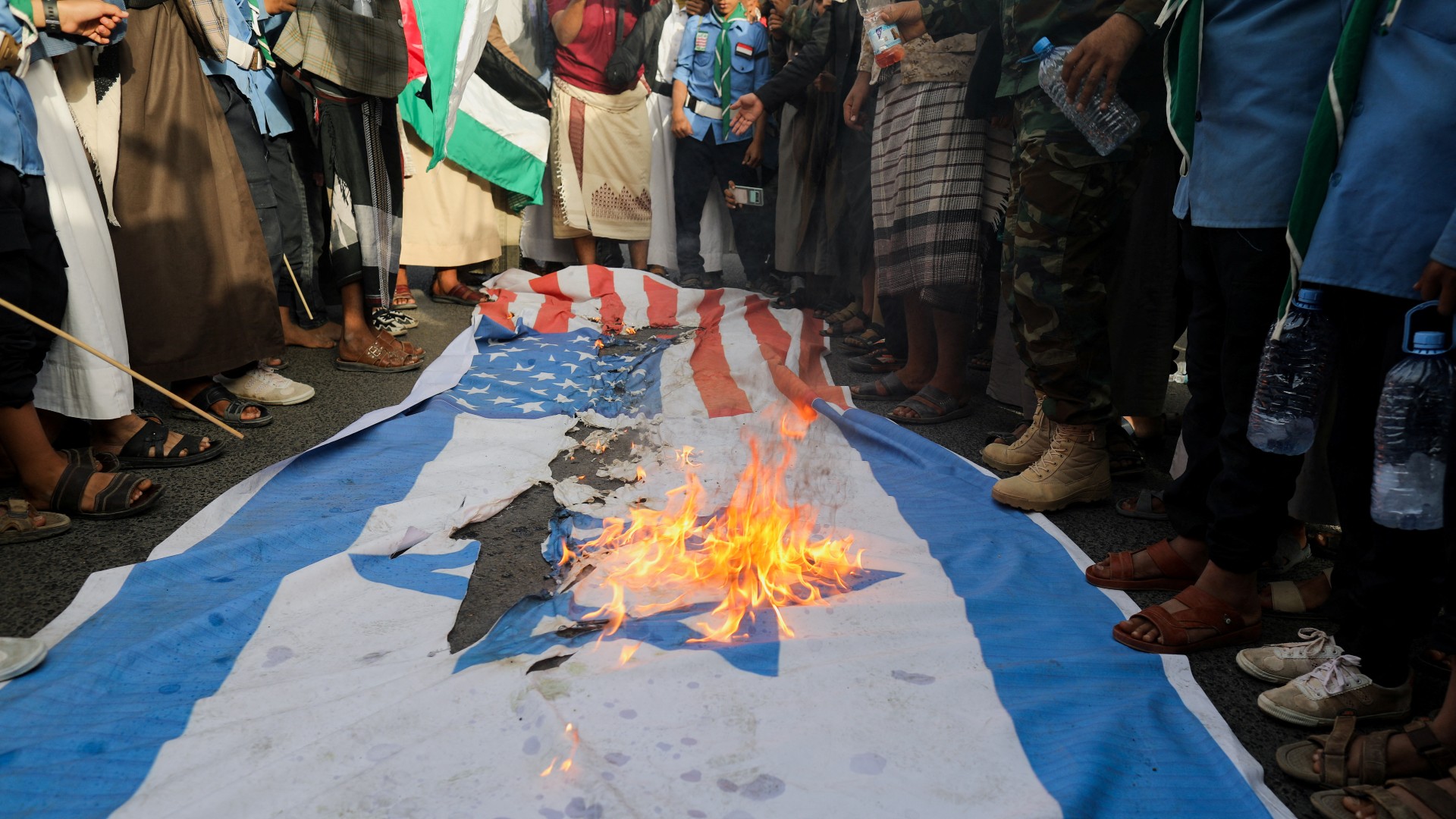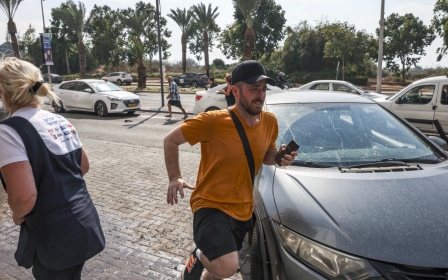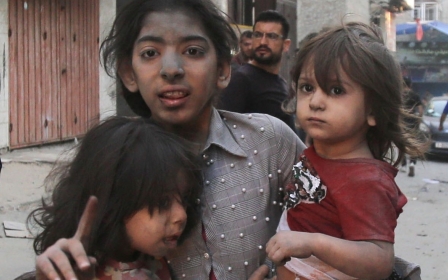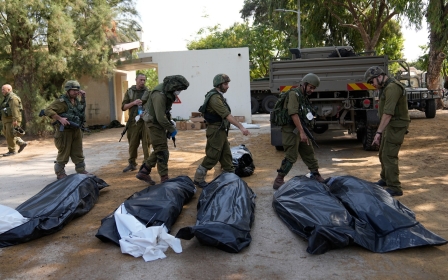Israel-Palestine war draws threats from Yemen’s Houthis of regional conflict
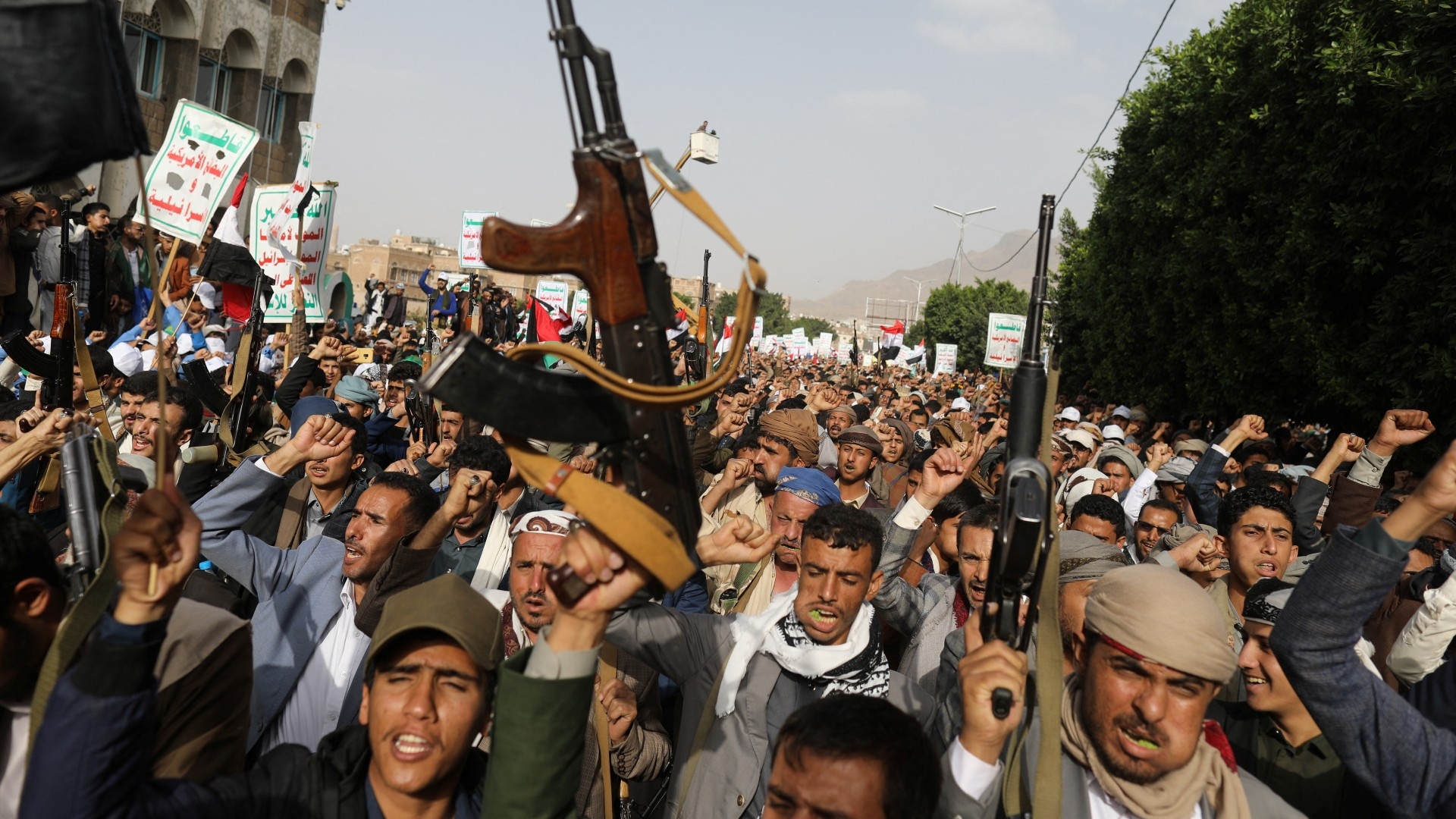
Yemen’s Iran-backed Houthi movement has issued a warning that it stands ready to engage in hostilities against Israel should the United States directly back the Israeli military campaign on the Gaza Strip.
In a televised address on Tuesday, Houthi leader Abdul Malik al-Houthi declared: "If the Americans directly intervene, we are prepared to partake in missile strikes, drone attacks, and other military actions.
"We are in full coordination with the axis of jihad and resistance to provide everything we can to support to the Palestinian people," he added.
On Saturday, Palestinian fighters poured into Israel from Gaza by land, sea and air, in a surprise attack that killed 1,200 Israelis. Since then, Israel has waged a bombing campaign on Gaza that has killed at least 1,200 Palestinians.
In his speech, the Houthi leader commended Saturday’s Hamas-led attack. "The operation disrupted the existing equilibrium and inflicted significant losses on the arrogant, criminal, aggressive, and oppressive Zionist enemy," he said.
While some observers have speculated that the assault might jeopardise the ongoing efforts between Saudi Arabia and Israel to establish formal relations, the Houthi leader emphasised the importance of its timing, "considering the circumstances and the broader regional context in which it unfolded".
Yemen has been at war since 2014, when the Houthi movement, also known as Ansar Allah, seized the capital Sanaa. Over nearly a decade, the conflict has resulted in deep divisions among civilians and pitted the Houthis against the internationally recognised government operating out of the southern city of Aden.
However, an unusual and unifying development has emerged, as both sides find common ground in condemning Israel and expressing solidarity with the Palestinian people.
Yemen's foreign ministry issued a statement, underscoring the need to "protect civilians and halt the provocations committed by Israeli occupying forces, which have persistently targeted the Palestinian people and their sacred sites”, echoing Hamas’ reasoning for the assault.
“These actions have long been a cause for concern, with warnings about their grave consequences," he added.
Rare unity
This represents one of the rare moments where the Saudi-backed government and Iran-aligned Houthis share a similar standpoint. Not only have Yemeni leaders voiced their unequivocal condemnation of Israel, but citizens from territory held by both sides have taken to the streets in substantial numbers.
'This presents an opportunity for the Houthis to reaffirm their commitment to the Palestinian cause, which they contend is at the core of their struggle'
- Ahmed Nagi, International Crisis Group
They have raised the Yemeni and Palestinian flags while expressing strong disapproval of Israel's bombardment of Gaza. Despite their internal differences, the conflict in Gaza has inspired a shared position of unity and support among Yemenis.
The Houthi threat to strike Israel is not a novel development, as they have issued similar warnings in the past.
In 2020, a Houthi official said that long-range missiles fired at Saudi Arabian oil facilities could also be used against Israel.
As the number of Palestinians killed by Israeli bombing grows, and the threat of a ground offensive in Gaza becomes more pronounced, there have been more calls from Houthi leaders to engage with and support Palestinian fighters.
Mohammed al-Bukhaiti, a member of the Houthi's political council and a spokesman for the movement, declared on X: "I believe that now is the opportune moment for the axis of resistance, represented by Yemen, Syria, Lebanon, Iran, and Iraq, to participate in the decisive battle against the occupying Zionist entity in support of our Palestinian brothers."
Ahmed Nagi, a senior analyst at the International Crisis Group think tank in Brussels, suggested that the messages conveyed by the Houthis aim to emphasise the regional dimension of their stance. To Israel’s north, Lebanon’s Hezbollah movement, too, has issued threats and there have been repeated flareups on the Lebanese-Israeli border.
"This presents an opportunity for the Houthis to reaffirm their commitment to the Palestinian cause, which they contend is at the core of their struggle, and their message embodies this principle," Nagi told Middle East Eye.
While the Houthi movement has demonstrated its capability to disrupt maritime lanes, given its previous attacks on ships in the Red Sea, it remains uncertain whether it possesses the means to reach Israel or the audacity to jeopardise American interests in the region.
Nagi asked: "What military capabilities might the Houthis possess if they decide to intervene? Do they have missile power capable of reaching Israel, or will their military actions target American interests in the region?"
Middle East Eye propose une couverture et une analyse indépendantes et incomparables du Moyen-Orient, de l’Afrique du Nord et d’autres régions du monde. Pour en savoir plus sur la reprise de ce contenu et les frais qui s’appliquent, veuillez remplir ce formulaire [en anglais]. Pour en savoir plus sur MEE, cliquez ici [en anglais].


